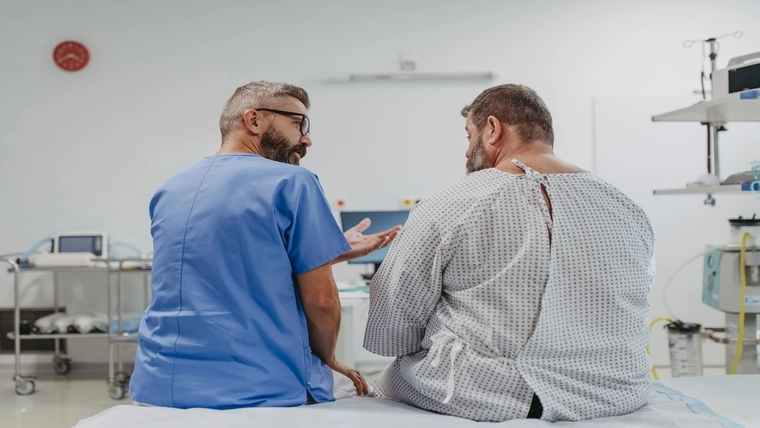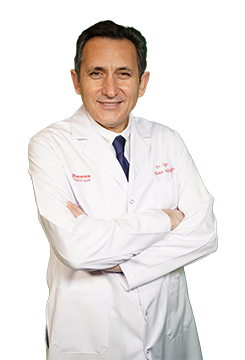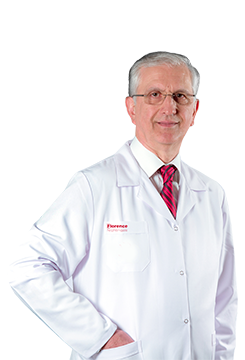
What is Obesity and Metabolic Surgery and What are the Diseases Treated?
Obesity is one of the most common health problems today, and metabolic surgery includes surgical interventions aimed at controlling this condition. Metabolic surgery is used in the treatment of obesity as well as obesity-related metabolic disorders such as type 2 diabetes, hypertension, and sleep apnea. These surgical methods help patients lose weight and control metabolic diseases.
About Obesity and Metabolic Surgery Center
The Center for Obesity and Metabolic Surgery is a health unit that provides specialized treatment and care services for patients struggling with obesity and metabolic diseases. This center aims to improve both the physical and psychological well-being of patients with a multidisciplinary approach.
Who are the Specialists at the Obesity and Metabolic Surgery Center and What are their Duties?
The center's specialists include general surgeons, endocrinologists, dietitians, psychologists, and anesthesiologists. These specialists create treatment plans based on the individual needs of patients and support patients at every stage of the surgical process.
What is done at the Obesity and Metabolic Surgery Center?
The Obesity and Metabolic Surgery Center is a health unit where individuals with obesity-related health problems are subjected to a comprehensive evaluation, personalized treatment plans are created, and necessary surgical procedures are performed. The procedures and services performed at this center can be generally grouped under the following headings:
1. Comprehensive Medical Evaluation
Patients first undergo a comprehensive medical evaluation regarding obesity and metabolic diseases. During this process, the patient's general health status, current health problems, degree of obesity and metabolic disorders are examined. Various tests such as blood tests, hormone tests, imaging techniques are performed and a treatment plan specific to the individual is created in line with these results.
2. Pre-surgical Counseling and Preparation
A pre-operative preparation process is initiated for patients requiring surgical intervention. During this process, patients are informed about the physical and psychological changes that the operation will bring. Dietitians guide patients on weight loss and nutrition before surgery. Psychologists support patients' psychological preparations before surgery.
3. Surgical Intervention
The center performs various surgical interventions for the treatment of obesity and metabolic diseases. Surgical procedures such as sleeve gastrectomy, gastric bypass and laparoscopic adjustable gastric banding are selected according to the patient's needs and health status. Since these procedures are performed minimally invasively with laparoscopic methods, the recovery process is faster and less painful.
4. Post-Surgery Follow-up and Support
After the surgery, patients are regularly monitored and provided with the necessary support. During this process, dietitians guide patients about their new eating habits, while psychologists provide support for possible psychological difficulties after the surgery. In addition, patients' weight loss processes are evaluated at regular intervals and additional interventions are made when necessary.
5. Lifestyle Change and Education
In addition to surgical intervention, patients are targeted to change their lifestyles permanently. They are given training on eating habits, physical activity levels and general lifestyles. These trainings help patients maintain a healthy life in the long term.
What are the diseases treated at the Obesity and Metabolic Surgery Center?
The center treats diseases such as obesity, type 2 diabetes, hypertension, high cholesterol, sleep apnea and metabolic syndrome. Treatment methods may vary between surgical and non-surgical approaches, depending on the patient's condition.
What are the procedures and examinations performed at the Obesity and Metabolic Surgery Center?
Procedures performed at the center include surgical procedures such as laparoscopic gastric bypass, gastric sleeve surgery, and gastric banding. Additionally, blood tests, imaging studies, and endoscopy are performed to assess the patient's condition.
What are the treatments applied at the Obesity and Metabolic Surgery Center?
The Center for Obesity and Metabolic Surgery offers a wide range of surgical and non-surgical treatment options for the treatment of obesity and related metabolic diseases. The treatments applied in this center are shaped according to the patient's general health status, degree of obesity, accompanying metabolic disorders and personal preferences. Here are the treatment methods frequently applied in this center:
Sleeve Gastrectomy (Gastric Sleeve Surgery)
Sleeve gastrectomy is the removal of a large portion of the stomach, leaving a thin, tube-shaped stomach tube. This surgery reduces the stomach volume, allowing patients to consume less food, and helps control appetite by reducing the level of the hunger hormone ghrelin. Sleeve gastrectomy is generally preferred in patients with a body mass index (BMI) over 35.
Gastric Bypass Surgery
Gastric bypass is a surgical procedure that reduces the size of the stomach and eliminates part of the intestines, reducing calorie absorption. This surgery allows patients to eat less and eliminate some of the calories they consume without being absorbed. Gastric bypass is an effective treatment option for patients with metabolic diseases such as type 2 diabetes in addition to obesity.
Laparoscopic Adjustable Gastric Banding
In this method, an adjustable silicone band is placed on the upper part of the stomach. This band creates a small pouch in the upper part of the stomach, allowing patients to consume less food. The tightness of the band can be changed with external adjustments, which helps patients control the weight loss process. This method is generally considered a low-risk option and is suitable for patients who prefer a less invasive surgery.
Biliopancreatic Diversion and Duodenal Switch
In this more complex surgical procedure, a large portion of the stomach is removed and a portion of the small intestine is rerouted. This procedure is a treatment that both limits food intake and significantly reduces calorie absorption. Biliopancreatic diversion and duodenal switch are often used in patients with a BMI over 50 and for whom other surgical methods have failed.
Endoscopic Intragastric Balloon
Endoscopic intragastric balloon is a non-surgical treatment option. In this method, a balloon placed in the stomach temporarily reduces the volume of the stomach. The balloon usually remains in the stomach for a period of 6 months to 1 year and helps patients lose weight during this time. This treatment is offered as an alternative for patients who do not want or are not suitable for surgery.
Drug Therapy
In addition to surgical methods in the treatment of obesity, drug therapy can also be applied. Drugs are used to control appetite, reduce fat absorption, or speed up metabolism. However, drug therapy is usually recommended for patients who cannot undergo surgery or who require additional support.
Nutrition and Diet Consulting
In addition to surgical interventions, patients are given nutritional and dietary counseling to help them adopt a healthy lifestyle. Dietitians help patients control their calorie intake and maintain a balanced and nutritious diet.
Psychological Support and Counseling
The process of obesity and metabolic surgery requires patients to be supported psychologically. In this center, psychological support is provided to patients to change their eating habits, control behaviors such as emotional eating, and cope with the difficulties they may encounter in the post-operative period.
What Tests Are Performed at the Obesity and Metabolic Surgery Center?
At the center, various tests are performed to evaluate patients' metabolic status and general health. These tests include blood sugar levels, insulin resistance tests, hormone tests and vitamin and mineral levels.
What are the Health Technologies (Devices) Used in the Obesity and Metabolic Surgery Center?
The health technologies used in the center consist of advanced devices to increase the success of surgical and diagnostic processes. Laparoscopic surgical instruments, endoscopy devices and advanced imaging technologies are among the technologies frequently used in this center.




